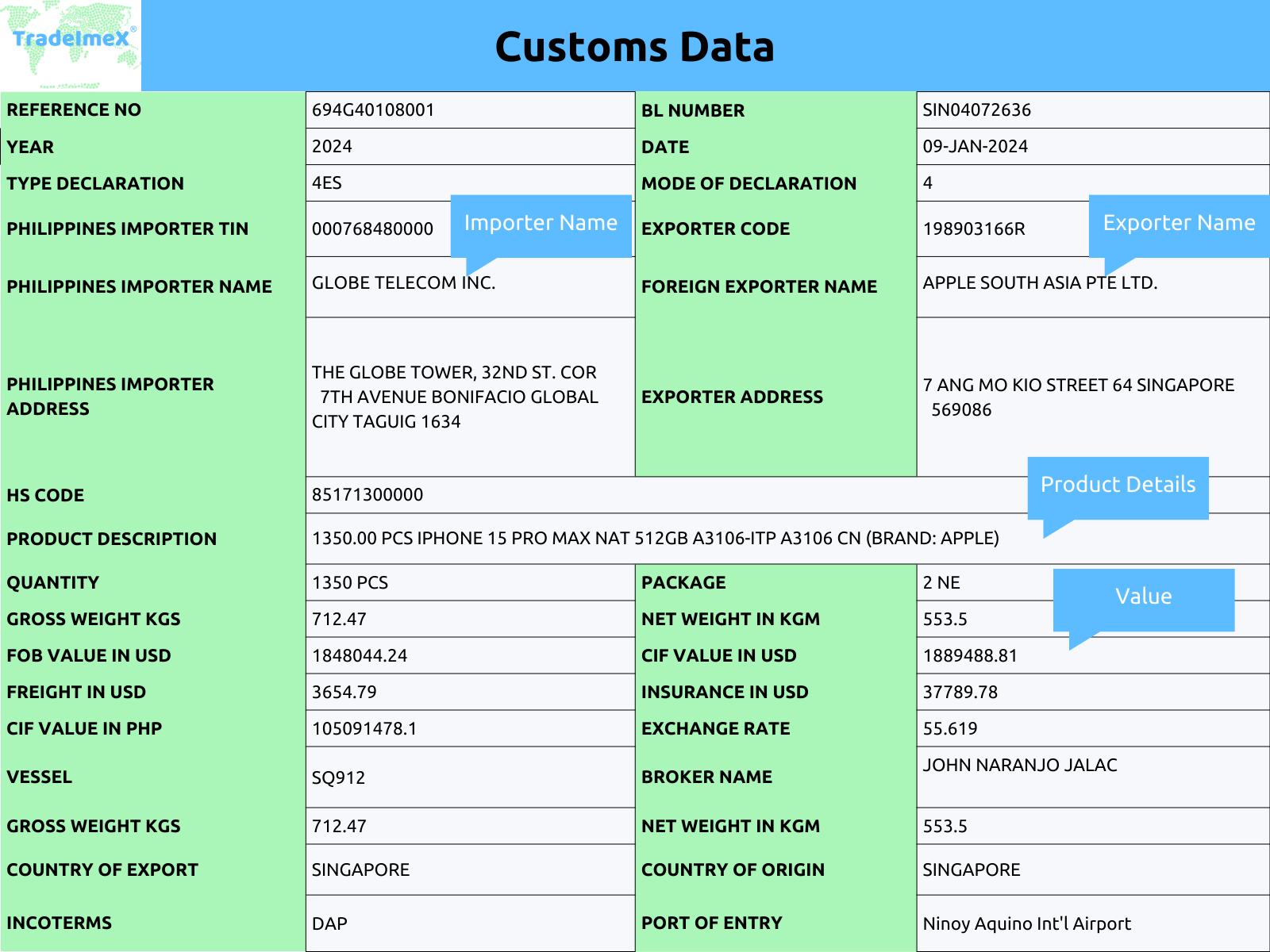Customs data refers to the information collected and recorded by customs authorities when goods are imported or exported between countries. This data serves as a critical resource for businesses, trade analysts, policymakers, and researchers looking to understand global trade flows. By analyzing customs data, businesses can identify new market opportunities, track competitors, and optimize their supply chains.
What is Customs Data?

Customs data encompasses details about international trade transactions, including:
Importer and Exporter Information: Names of the parties involved in trade.
Product Descriptions: Detailed information about the goods being traded.
HS Code: A standardized system used to classify traded products.
Customs Charges: Duties, tariffs, and taxes applied to imported/exported goods.
Quantity and Unit: The amount of goods traded and their measurement unit.
Ports of Entry and Exit: Locations where goods are shipped from and received.
Country of Origin and Destination: The source and final destination of products.
Customs data is often categorized into bill of lading data, shipment data, trade statistics, and transaction-level trade records based on the depth of information available.
Importance of Customs Data in Global Trade
1. Market Intelligence and Business Expansion
Businesses can leverage customs data to analyze demand for their products in different regions, identify potential customers, and expand into new markets. By studying import-export trends, companies can align their strategies with market needs.
2. Competitor Analysis
Customs data reveals crucial information about competitors, including their trading partners, shipment volumes, and pricing strategies. This helps businesses gain a competitive edge by understanding market positioning and improving their supply chains.
3. Optimizing Supply Chain and Logistics
By tracking shipping routes, trade volumes, and port activity, businesses can optimize their logistics strategies, reduce transportation costs, and enhance efficiency.
4. Compliance and Risk Management
Governments and businesses use customs data to monitor trade compliance, detect fraud, and ensure that regulations are met. Importers and exporters can avoid penalties by adhering to customs regulations based on historical trade data.
5. Enhancing Trade Policy and Economic Decisions
Policymakers and economists analyze customs data to assess trade deficits, negotiate trade agreements, and develop economic policies. Governments use this data to determine tariff structures and identify trade imbalances.
Types of Customs Data
Import Data: Provides insights into goods entering a country, along with information about importers, suppliers, and product specifications.
Export Data: Details products being shipped out of a country, helping exporters identify potential buyers and markets.
Shipment Data: Includes details such as bill of lading numbers, shipment weight, and transportation modes.
Customs Statistics: Aggregated trade data used for macroeconomic analysis and policy-making.
How TradeImeX Provides Valuable Customs Data
TradeImeX is a leading provider of customs data, offering comprehensive trade intelligence for businesses worldwide. The platform provides:
Real-time Customs Data: Updated trade records for accurate analysis.
Detailed Trade Reports: Customizable reports with in-depth trade insights.
Global Trade Coverage: Data from multiple countries to support international business expansion.
User-Friendly Interface: Easy access to trade information with advanced search filters.
Conclusion
Customs data is a vital tool for businesses, analysts, and policymakers to understand global trade dynamics. By utilizing customs data from TradeImeX, companies can enhance decision-making, track market trends, and stay ahead in the competitive trade environment. With access to real-time trade insights, businesses can expand globally while ensuring compliance and operational efficiency.








